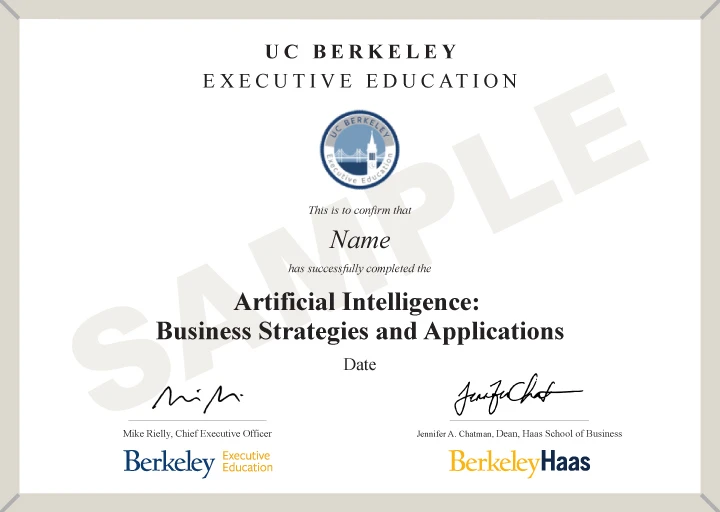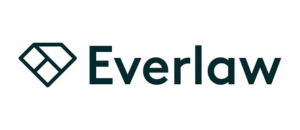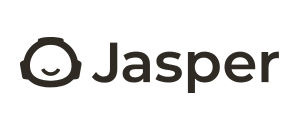Artificial Intelligence: Business Strategies and Applications
How Is AI Transforming Business?
According to Bloomberg, generative AI is anticipated to become a US$1.3 trillion market by 2032. A recent survey by New Vantage Partners found that 91.7 percent of top organizations are investing in Artificial Intelligence activities, and 54 percent of organizations using Artificial Intelligence reported cost savings and efficiencies in a study by IBM. With advancements in machine learning, automation, and natural language processing, AI, particularly generative AI, is revolutionizing traditional business models in unprecedented ways and is poised to drive a new wave of innovation and evolution across industries.
Artificial Intelligence offers a vast array of capabilities with virtually limitless potential, including automating repetitive tasks, providing predictive insights, enabling personalized customer experiences, optimizing supply chain management, and improving risk assessment. As generative AI continues to transform every aspect of modern business, organizations that embrace it will be empowered to unlock new opportunities, achieve operational efficiencies, and drive sustainable growth, gaining a competitive advantage.
In this program, you will:
Learn AI’s current capabilities and applications and its future potential
Learn how to leverage generative AI models and simulations for prediction
Learn how to organize and manage successful artificial intelligence application projects
Grasp the technical aspects of artificial intelligence well enough to communicate effectively with technical teams and colleagues
Learn how to avoid pitfalls associated with these new technologies
Build your leadership credibility by obtaining a certificate of completion from UC Berkeley Executive Education
Program Topics
This artificial intelligence program helps introduce the basic applications of AI to those in business. While participants learn about generative AI's current capabilities and potential, they also gain deeper knowledge about the reach of automation, machine learning, and robotics.
Note: module topics are subject to change.
Live Sessions
The program includes four live sessions that cover the most recent trends in genAI and its future applications. Each session is led by renowned faculty. These sessions will be recorded and made available for later viewing.*
Live Session 1: The Business of AI Today
Understand the latest business applications of Artificial Intelligence, such as natural language processing (e.g., ChatGPT), the generative AI landscape, and language models.
Live Session 2: Generative AI Models and Simulation for Prediction
Discuss simulation and prediction as a lens for understanding generative models based on transformers and physics-based models.
Live Session 3: AI and Organizations — Building Your AI Team
Understand how the tools of AI and machine learning can enable the assessment of different facets of organizational culture and discuss technology-enabled approaches for shifting it in ways that support performance.
Live Session 4: The Future of AI in Business
Examine recent trends and interesting research in the field of artificial intelligence, including algorithmic bias and how to correct it.
Note: live sessions mentioned here are subject to change.

Capstone Project
Across the eight modules, you will develop and refine an AI project or initiative for your organization. The project culminates in a business case and plan that uses genAI to transform at least one aspect of the business. You have the opportunity to put the plan into action after testing its elements throughout the program. If you do not have an organizational project or initiative to develop, faculty will provide project ideas.
Your Learning Journey
You can expect a hands-on approach that builds a bridge between the engineering and technical aspects of AI and its business applications. Leading faculty from both disciplines teach in the program, bringing their diverse experiences. The program includes live and recorded lectures, case studies, assignments, applied learning opportunities, and interactive discussion groups. The program includes four live teaching sessions, real-world examples, and a capstone project. You will also engage in live faculty sessions that will delve into trending AI topics, such as the business and future of AI, prediction simulations, and building AI teams.
This program requires no engineering or technical experience. As the program progresses, you will learn the basics of artificial intelligence technologies and how they can be applied to your organization. It is not about becoming a technical expert but rather having a foundational understanding of AI and how it can be positioned to improve efficiency and effectiveness across your organization.
Program Experience

Live teaching sessions to deliver learning in real time

Cross-disciplinary approach through diverse faculty

Real-world applications

Capstone project: AI initiative for your organization

Case Study
Digital transformation has implications for a an organization's strategy. What is an appropriate change management strategy when implementing AI and machine learning? We'll tap Vodafone for insights.
Other case studies covered in this program are Skydio and Zipline, Self-driving cars, and warehouse and factory automation (Covariant).
Participant Testimonials
Program Faculty
Learn from our distinguished faculty at the forefront of information and communication technology, online marketing strategy, and management philosophy.

Ewald T. Grether Professor of Business Administration and Public Policy | Co-Director, Computational Culture Lab | Co-Director, Berkeley Center for Workplace Culture and Innovation, Haas School of Business
Sameer B. Srivastava, an associate professor, studies the interplay of social group culture, individual cognition, and the relationships people build within and between groups...

Associate Adjunct Professor, Research Scientist
Thomas Lee is an Associate Adjunct Professor and Research Scientist in the Haas Operations and Information Technology Management Group at the Haas School of Business. He teach...

Professor of Marketing
Zsolt Katona holds a Ph.D. in computer science from the Eotvos University in his native Hungary and a Ph.D. in marketing from INSEAD France. He is a Professor of Marketing and...

Professor, UC Berkeley Electrical Engineering and Computer Sciences (EECS)
Pieter Abbeel is a Professor at UC Berkeley’s Electrical Engineering and Computer Sciences school and Director of the Berkeley Robot Learning Lab and co-director of the Berkel...

Visiting Scholar/Executive in Residence UC Berkeley Haas School of Business
Matthew Stepka is a Visiting Scholar and Executive in Residence at UC Berkeley Haas School of Business. In addition, he is managing partner at Machina Ventures, an investment ...

Certificate
Get recognized! Upon successful completion of the AI certificate program, UC Berkeley Executive Education grants a verified digital certificate of completion to participants. Participants must complete 80 percent of the required activities including a capstone project (if any) to obtain the certificate of completion. This AI certificate program also counts toward a Certificate of Business Excellence.
Note: This program results in a digital certificate of completion and is not eligible for degree credit/CEUs. After successful completion of the AI certificate program, your verified digital certificate will be emailed to you in the name you used when registering for the program. All certificate images are for illustrative purposes only and may be subject to change at the discretion of UC Berkeley Executive Education.

This program counts toward a Certificate of Business Excellence
Curriculum Days: Two days
Pillar(s): Entrepreneurship & Innovation or Strategy & Management
A UC Berkeley Certificate of Business Excellence gives individuals the opportunity to create a personal plan of study structured by our four academic pillars. Participants will earn a mark of distinction with certification from a world-class university, and enjoy the flexibility of completing the program in up to three years.
FAQs
Didn't find what you were looking for? Write to us at learner.success@emeritus.org or schedule a call with one of our Program Advisors or call us at +1 864 668 8832 (US) / +44 121 387 3504 (UK) / +65 3129 7057 (SG).
Early registrations are encouraged. Seats fill up quickly!
Flexible payment options are available.
Starts On













